Posted on 9/26/2025
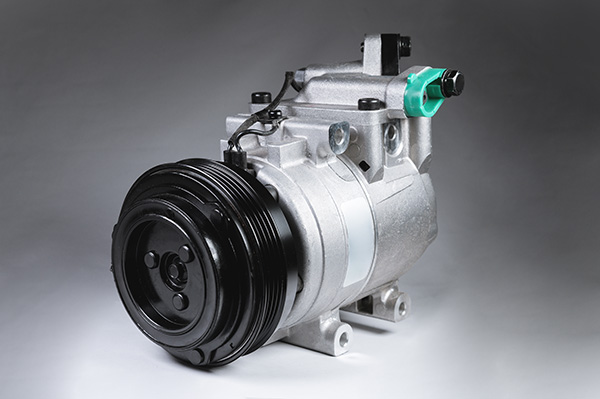
When you live in a warm, humid place like Kaneohe, having a reliable air conditioning system is a necessity. At the heart of that system is the A/C compressor, which keeps refrigerant moving so your cabin stays cool. But like any other component, compressors wear out over time, and when they start to fail, your AC performance quickly suffers. Knowing the signs of a failing compressor can help you address the issue early and avoid bigger, costlier repairs. Why the A/C Compressor Is So Important Your compressor’s job is to pressurize the refrigerant and circulate it through the AC system. It takes low-pressure refrigerant from the evaporator, compresses it into a high-pressure state, and sends it to the condenser, where heat is released. Without a working compressor, the entire cooling process breaks down, and you’re left with warm or inconsistent airflow from your vents. Because the compressor operates whenever your AC is on, it experiences significant we ... read more
Posted on 8/29/2025
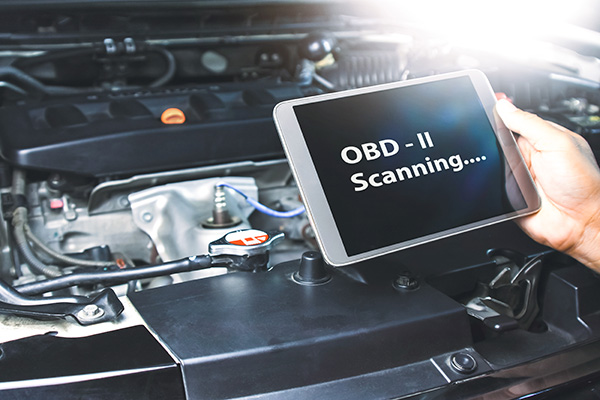
When your check engine light suddenly appears on the dashboard, it’s easy to feel overwhelmed. The light can signal anything from a loose gas cap to a serious engine malfunction. That’s where diagnostic scans come in. But how accurate are they? Can a diagnostic tool actually tell you exactly what’s wrong with your vehicle? Let’s explore how modern automotive diagnostics work, what they can tell you, and why professional interpretation is key. What Is a Diagnostic Scan A diagnostic scan is performed using a tool called an OBD-II (On-Board Diagnostics) scanner. This device connects to a port in your vehicle and reads stored trouble codes that the car’s onboard computer generates when it detects something abnormal. These codes are usually labeled with a letter and a series of numbers (like P0301), which correspond to specific systems or types of malfunctions. Once a code is retrieved, a technician uses it as a starting point for further i ... read more
Posted on 7/25/2025
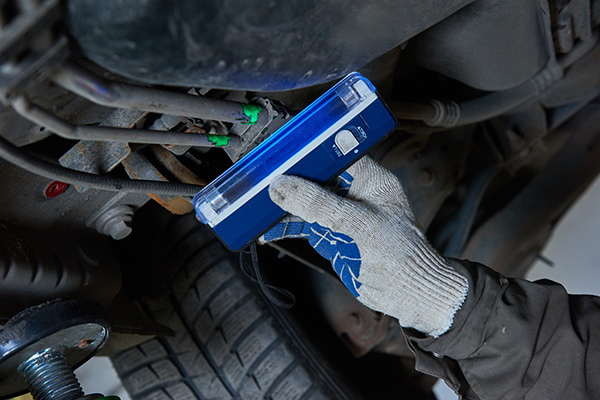
Everybody knows how frustrating it is to turn on your car’s A/C on a hot day and realize it’s blowing warm air instead of cool relief. One of the most common reasons for A/C failure is a refrigerant leak. While occasional leaks can occur over a vehicle's lifetime, frequent A/C leaks are a sign that something more serious may be happening. Understanding what causes these leaks can help you stay comfortable and avoid expensive repairs. The Role of Refrigerant in Your A/C System Refrigerant is the substance that absorbs heat from inside your car and releases it outside, allowing the system to produce cold air. It circulates through components like the compressor, condenser, evaporator, and various hoses and seals. Because the system is designed to be closed and pressurized, any drop in refrigerant usually points to a leak. When refrigerant levels drop, your A/C system loses its ability to cool, and other components may be forced to work harder, potentia ... read more
Posted on 6/27/2025
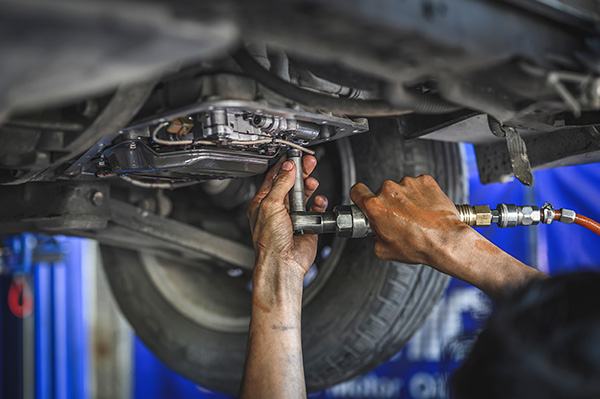
Of all the fluids circulating through your vehicle, transmission fluid is one of the most important and also one of the most frequently overlooked. While many drivers understand the need for regular oil changes, the transmission often doesn’t get the attention it deserves until problems start to show. Transmission fluid is essential for both automatic and manual transmissions. It lubricates moving parts, cools internal components, and helps transfer power from the engine to the wheels. Skipping fluid changes may not seem like a big deal at first, but it can shorten your transmission’s lifespan and lead to costly repairs down the road. What Transmission Fluid Does Transmission fluid isn’t just a lubricant. It also serves as a hydraulic fluid, particularly in automatic transmissions, where it helps control gear changes. As the transmission h ... read more
Posted on 5/30/2025
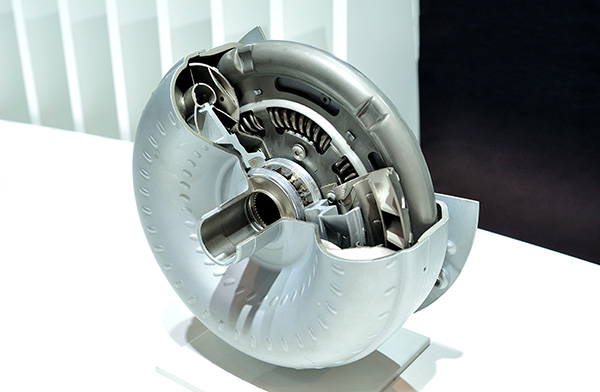
When you drive a vehicle with an automatic transmission, there’s a complex system at work behind the scenes making everything feel smooth and seamless. One of the most important components in that system is the torque converter. It plays a critical role in helping your car move without needing a manual clutch—and if it stops working properly, you’ll feel it. So, what exactly is a torque converter, and what does it do? Here’s a clear explanation that helps you understand how this part affects your driving experience—and why it matters if you ever run into trouble. The Torque Converter Replaces the Clutch In a manual transmission, you press the clutch pedal to disconnect the engine from the transmission so you can change gears. Automatic transmissions don’t use a clutch—instead, they rely on the torque converter to handle that connection. It allows the engine to spin even when the car isn’t moving and smoothly transfers ... read more
Posted on 4/25/2025
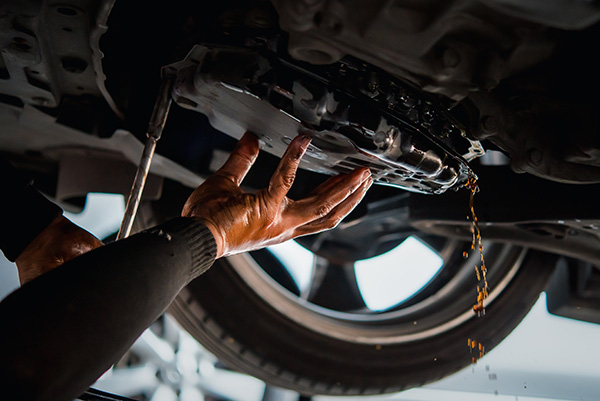
Most people know that low transmission fluid is bad news—but too much of it can cause just as many problems. Overfilling might seem harmless initially, especially if you're just trying to be cautious, but it can lead to shifting issues, pressure buildup, and even internal damage over time. If your transmission has started acting strange after a recent top-off, there’s a good chance the fluid level might be too high. So what happens when there’s too much fluid—and why should you fix it before it turns into a bigger issue? The Right Fluid Level Automatic transmissions are complex systems that rely on precise hydraulic pressure to work correctly. Transmission fluid isn’t just a lubricant—it also transfers power, cools the system, and controls pressure inside the transmission. That’s why getting the level just right is so important. When there’s too much fluid, it disrupts the balance inside the system. The fluid beco ... read more
Posted on 3/28/2025
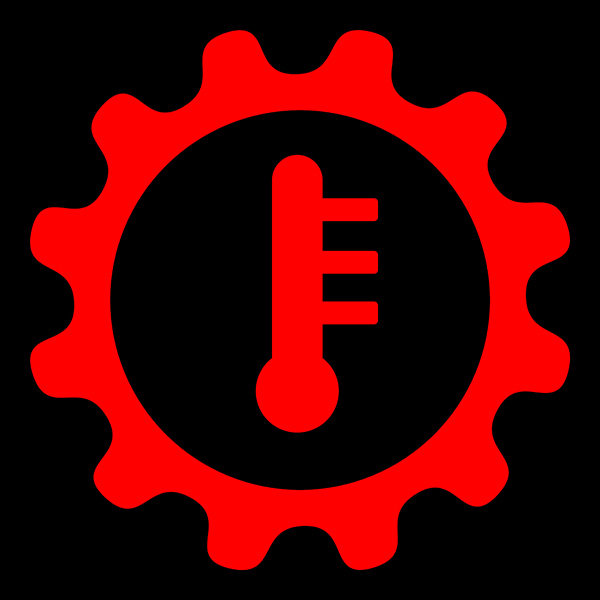
Your car’s transmission works hard every time you drive, ensuring power is delivered to the wheels efficiently. But when it overheats, it can lead to serious performance issues, premature wear, and even total failure. Factors like stop-and-go traffic, heavy loads, and hot weather can put extra strain on your transmission, making proper maintenance essential. In a climate like Kaneohe, HI, where heat and humidity are constant, taking steps to prevent overheating can save you from costly repairs and keep your vehicle running smoothly. Why Do Transmissions Overheat Your transmission works by shifting gears and transferring power from the engine to the wheels. This process generates heat, and while your transmission fluid is designed to lubricate and cool the system, excessive heat can quickly break it down. Overheating often occurs due to low fluid levels, heavy towing, stop-and-go traffic, or faulty cooling components. Ignoring overheating can lead to burnt tran ... read more
Posted on 2/28/2025

Driving in a hot, humid environment can be uncomfortable, especially when your car’s air conditioning system isn’t working properly. While most people think of their A/C as just a cooling system, it actually plays a crucial role in removing excess moisture from the air inside your car. Without this function, humidity can build up, leading to foggy windows, musty odors, and an overall less comfortable ride. But how exactly does your car’s A/C system remove humidity? How Your Car’s A/C System Works Your car’s air conditioning system does more than just blow cold air—it controls both temperature and humidity levels inside the cabin. It operates through a cycle of compression, condensation, and expansion, which allows it to remove heat and moisture from the air. When you turn on the A/C, the refrigerant flows through the compressor, increasing its pressure and temperature. The hot refrigerant then moves to the condenser, where it cool ... read more
Posted on 1/31/2025
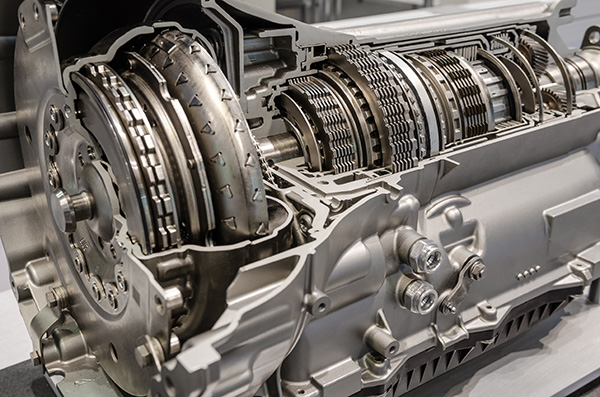
When it comes to car maintenance, transmission care often takes a backseat. Yet, your car’s transmission is an essential component that plays a significant role in your vehicle's operation. Whether you drive an automatic or manual, the transmission is responsible for transferring engine power to the wheels, allowing you to drive efficiently. So, what happens if you neglect transmission maintenance? It could lead to costly repairs and, even worse, a total transmission failure. That’s why factory-recommended transmission maintenance is essential to keeping your car running well and ensuring it lasts for many years to come. What is Factory-Recommended Transmission Maintenance Factory-recommended transmission maintenance refers to the guidelines set by the vehicle manufacturer for keeping the transmission in top working condition. These recommendations typically include periodic fluid checks, fluid changes, filter replacements, and sometimes complete tran ... read more
Posted on 12/20/2024
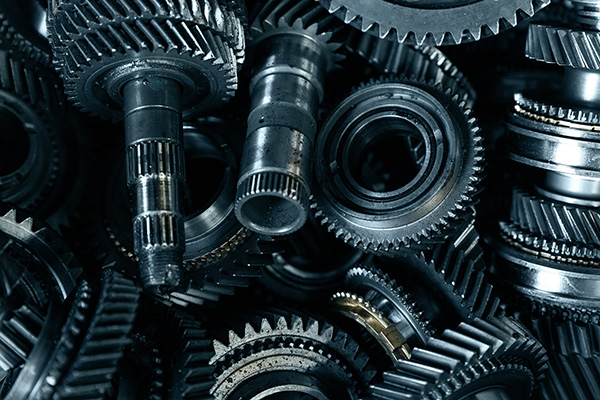
Your car’s transmission is the backbone of its performance, ensuring the engine's power gets where it’s needed most—to the wheels. When the transmission isn’t working properly, your car might feel sluggish, unresponsive, or outright unpredictable. But how do technicians figure out what’s wrong when your transmission starts acting up? Transmission diagnostics rely on a combination of advanced technology and expertise. We'll explain how this process works and why it’s essential for keeping your car on the road. The Role of Transmission Diagnostics Your car’s transmission is a complex system, whether it’s automatic, manual, or a modern CVT. It involves gears, clutches, and a host of electronic components that all work together. Because of its intricacy, figuring out what’s wrong isn&rsq ... read more